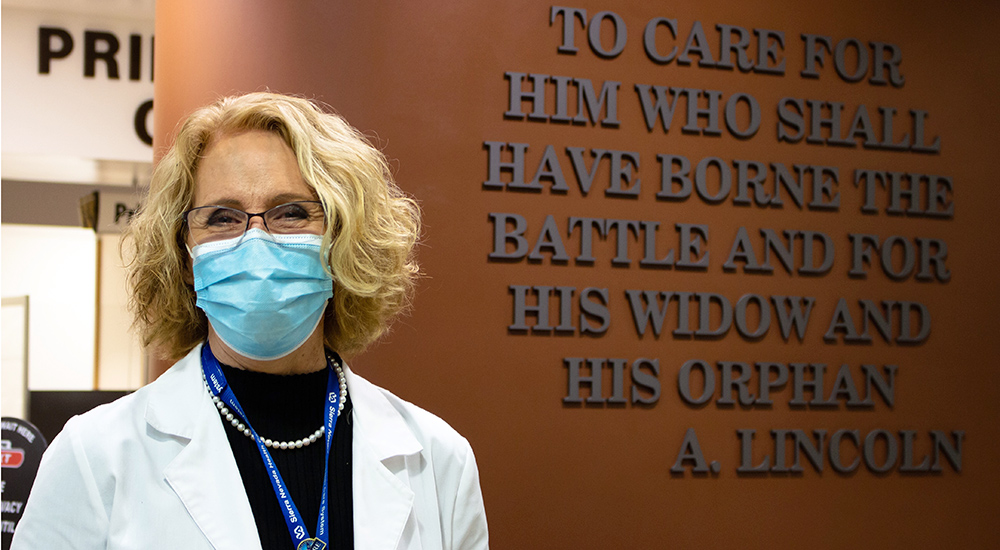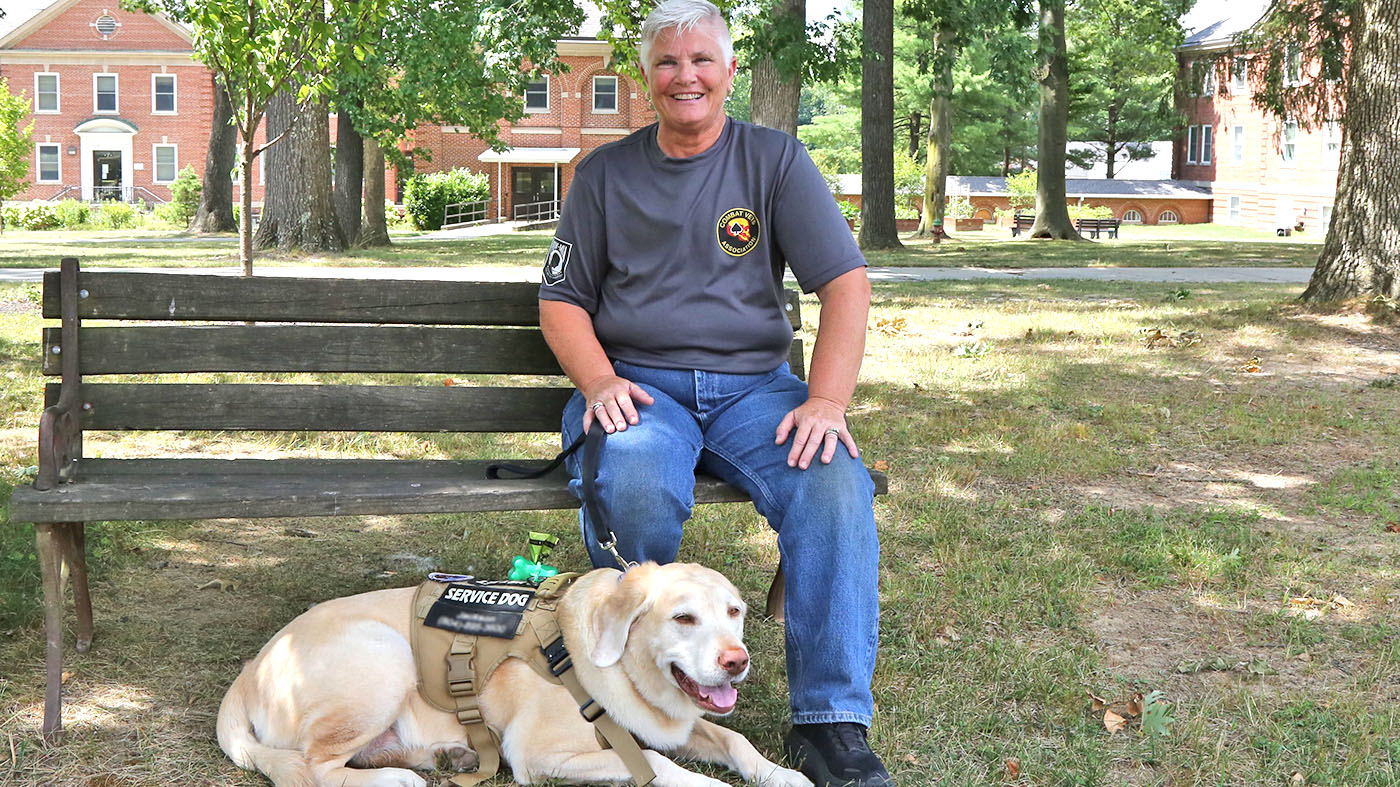Thérèse Duggan recently received her official credentials from Human Resources, allowing her to join VA’s volunteer force as a physician ambassador. Why would a retired registered nurse continue her license seven years after retiring, only to volunteer?
Through a nationwide program created by VA, retired medical practitioners can sign up to volunteer at a VA medical center. They serve alongside Veterans’ care teams. Together, they provide advanced skill sets and assist our nation’s heroes by becoming a physician ambassador.
“I wanted to do vaccinations and I liked the idea of only coming in for a few hours once or twice a week,” Duggan said. “If I want to volunteer for more time, I can [do that] without the obligation of being on payroll. I think volunteering when you’re retired is a really good match because I can make my own schedule and still get the gift of helping people.
“I didn’t want to return to the busy and chaotic atmosphere of the emergency department – with the records keeping and long hours. I traded most of my life for that and in several occasions everything else came second. But I still want to help.
“If you told me that I couldn’t help people, it would be just like a death sentence. Health care workers get into this line of work because we like to help people and we like the interaction. We know that our kindness, our love and our smile can make a real difference in someone’s life. Certainly, here at VA.”
From oncology to ICU to UC Irvine
As a third-generation nurse, Duggan (photo above) felt the calling to attend nursing school in 1974 in downtown Los Angeles in the big inner-city California Hospital. It was a full immersion experience.
From there, she went to work at Martin Luther Hospital in Anaheim where she started in oncology. After only one year, she was pulled into ICU and trained as an ICU nurse.
Years later, she attended the University of California at Irvine, where they worked hand in hand with the VA facilities in Santa Ana, Long Beach and Laguna Woods to assist Veterans with medical needs.
“My husband served during the Cold War in the Navy. I’ve always felt connected to our Veterans,” she said, on her connection to VA. Her career continued through all departments in medicine, from emergency room to leadership to now, as an ambassador.
Volunteering as an ambassador
The Physician Ambassador Program is a national program. It seeks to enhance health care services to Veterans and their families while providing a streamlined process for volunteer civilian physicians and clinicians to give back to Veteran community.
The program is without compensation for licensed physicians and clinicians who wish to serve in a volunteer role to deliver health care services to Veterans.
Duggan is a blessing to everyone she encounters and VA is honored to receive her generosity. If you’re a retired, licensed medical practitioner, consider joining the Physician Ambassador Program as a volunteer to our Veterans.
Shane Whitecloud is a VA public affairs officer and Navy Veteran.
Topics in this story
More Stories
Combat Veteran faces the traumatic events of her PTSD during prolonged exposure therapy and looks forward to the days to come.
Bob Jesse Award celebrates the achievements of a VA employee and a team or department that exemplifies innovative practices within VA.
The Medical Foster Home program offers Veterans an alternative to nursing homes.








In 2020 – President Trump’s Extreme Budget Cuts Hurt Veterans. Trumped failed our veterans and their families by drastically slashing crucial programs they rely on. This President prioritized the rich and powerful over the well‑being of American families, including our veterans. Just like his prior budgets, he extends the failed GOP tax law that showered benefits on the wealthy, adding $1.5 trillion more to debt over the next decade – exacerbating the $1.9 trillion hole it blew in our deficit. Trump extended tax breaks largely for the rich all while maliciously cutting programs other crucial programs. Destructive cuts to these programs hurt millions of veterans and their families who depend on them for their health, safety, and economic well‑being.
Trump is wrong that Veterans Choice wasn’t passed until he came into office. Congress did pass a new version of a Choice program in June 2018 — but the program itself has been around since 2014. Congress and the Obama administration passed the Veterans Access, Choice and Accountability Act of 2014.